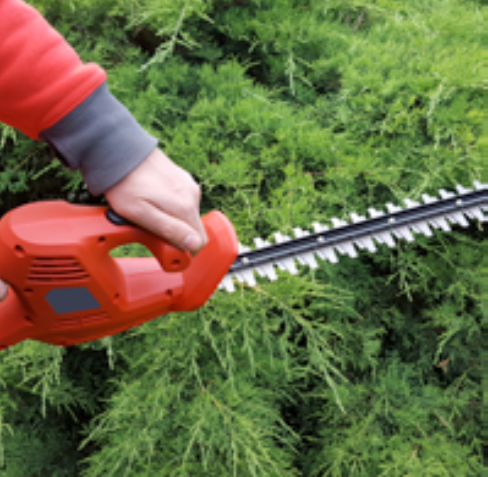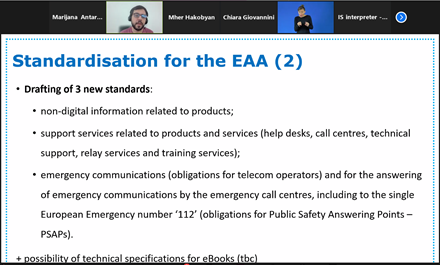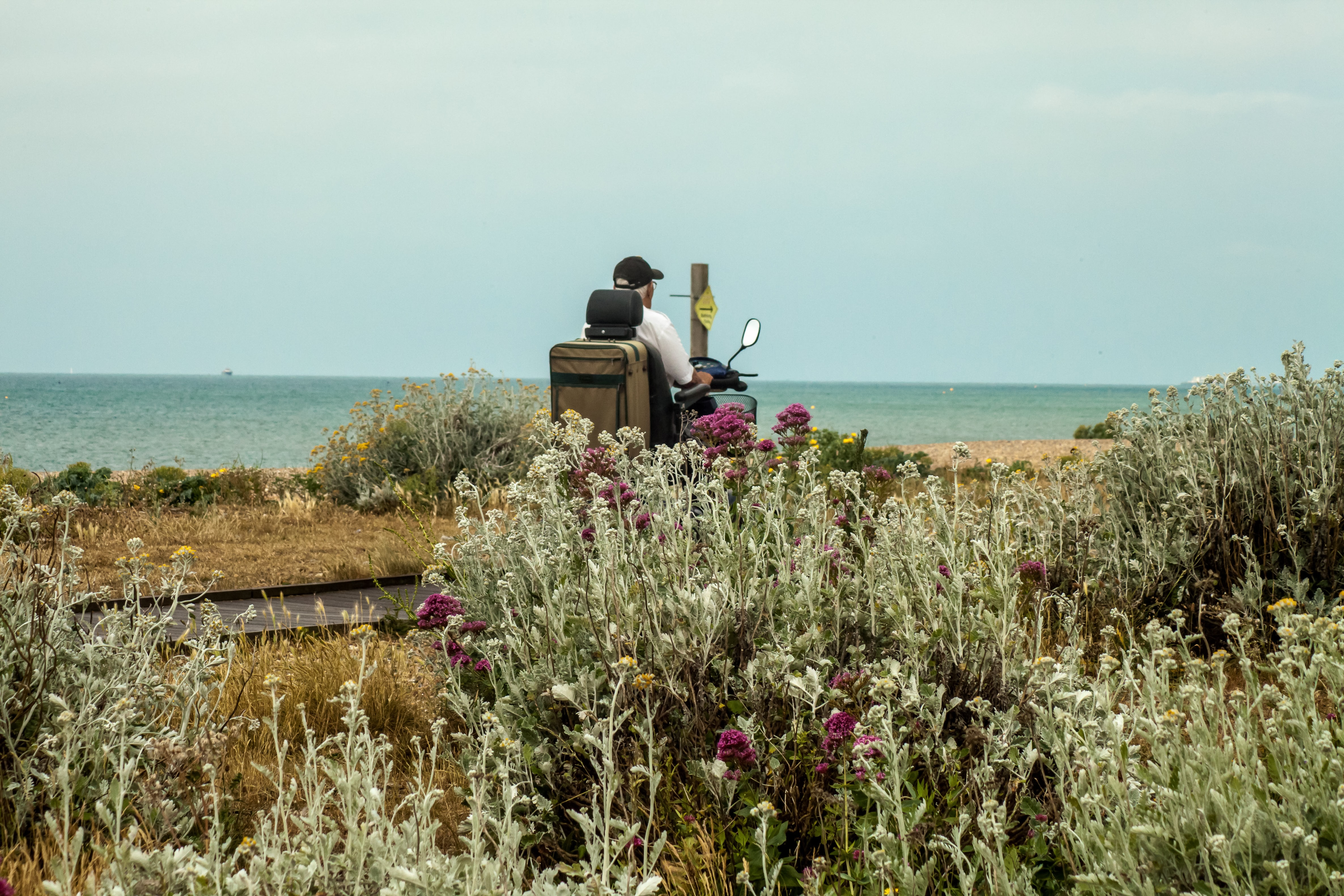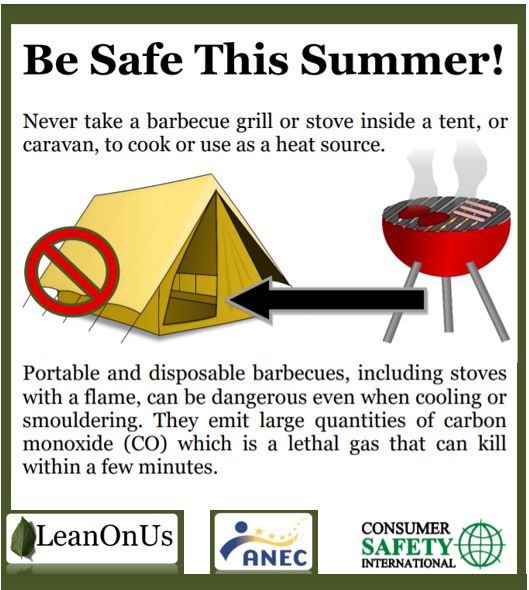Lead story
ANEC General Assembly
ANEC held its 32nd General Assembly meeting on 10 June. The meeting was hosted from Dublin by ANEC President, Dermott Jewell. The agenda saw Mr Jewell (Ireland) re-elected President for a further two-year term; Jens Henriksson (Sweden) re-elected Vice-President, and Rusnė Juozapaitienė (Lithuania) elected Treasurer. The members from Czechia, Italy, North Macedonia, Norway, Spain & UK were also elected to the Steering Committee (board).
In introducing the ANEC Annual Review 2020, Mr Jewell spoke at his pride in leading an association which had continued to make great strides in raising standards for consumers despite the COVID-19 pandemic. Other items on the agenda including the formal evaluation of the ANEC Strategy 2014 to 2020, ahead of finalisation of the ANEC Strategy 2030, and a keynote from Director-General of DG GROW, Kerstin Jorna, looking ahead to the publication of the Standardisation Strategy later in 2021.
ANEC Annual Review 2020
The General Assembly meeting welcomed the Annual Review 2020 as a thorough record of the activities and successes of the association, in a year dominated by the pandemic. Even with the cancellation of many meetings and delays to some standardisation activities, in its 25th anniversary year, ANEC still participated in 525 meetings and sent 417 sets of written comments on draft standards, as well as 47 Opinions to CEN-CENELEC on standards under vote. The report can be downloaded at https://bit.ly/2U9Qxfj.

Horizontal
AUWP 2022
At the invitation of the European Commission (EC), ANEC submitted comments on the draft Annual Union Work Programme (AUWP) for European Standardisation 2022. The scope of our comments addressed the broad themes of inclusiveness, services standardisation and international cooperation, with specific comments on safe & trustworthy AI systems, safety requirements for childcare articles, and batteries among others.
The commentary can be found at https://bit.ly/3jzrWLF.

ANEC-BEUC react to GPSR proposal
On 30 June, the EC made a first step towards a better product safety law by presenting a proposal (https://bit.ly/3xCBOIP) to reform the General Product Safety Directive (GPSD). Consumer groups welcomed the proposal to revise the law in light of today’s product safety challenges, while retaining the spirit and strengths of the existing law. The replacement of the Directive by a Regulation, with direct legal effect in all Member States, was especially welcomed as a way to achieve more consistent consumer protection across the EU.
ANEC & EuroSafe have long called for the creation of a pan-EU accidents & injuries database as a tool to improve product safety. Indeed, pressure from a coalition of over 40 associations from across the economic & social spectrum, including ANEC & EuroSafe, saw the European Parliament (EP) introduce an amendment to an earlier EC proposal that made provision for the creation of the database.
On publication of the new EC proposal, Stephen Russell, Secretary-General of ANEC, said: “We welcome the EC’s recognition that accidents & injuries related to unsafe products cost consumers and broader society 11,5 billion euros annually, not forgetting the physical and emotional pain suffered. However, it is not clear whether the proposal will support our call for the creation of a pan-EU accident & injuries database to help identify where preventive measures – including European standards - are needed and assess their effectiveness”.
Nevertheless, ANEC & BEUC believe the proposal includes several important measures:
- to include ‘cybersecurity’ as a requirement for products to be considered ‘safe’;
- to ensure all products benefit from strengthened market surveillance rules;
- to enhance the possibilities for international cooperation on product safety;
- to maintain the spirit and strengths of the GPSD which has served consumers well since 2001.
Read the ANEC-BEUC media release at https://bit.ly/3hdHCT7.
European Accessibility Act
During the meeting of the EC Committee on Standards on 2 July, ANEC welcomed the draft Standardisation Request (SReq) intended to provide the Harmonised Standards to support accessibility requirements of products and services in line with Directive (EU) 2019/882, the European Accessibility Act. We also welcomed the call for increased inclusiveness of the standardisation process in order to ensure consumers of all ages and abilities can participate effectively in the development of the standards, and deliver standards for all.
Turning to the revision of standards under the SReq, in the case of EN 301549 ‘Accessibility requirements for ICT products and services’, we think new requirements for identification of e-banking services will need to be developed. Turning to EN 17210 ‘Accessibility & usability of the built environment’, we think it would be valuable to make the contents of the standard accessible via an online toolkit. The toolkit could support accessibility needs, verification of supplier claims of accessibility, and information on testing & conformity aspects .
Regulation on machinery products
On 21 April 2021, the EC published its proposal for a Regulation on machinery products (https://bit.ly/3i1VKyc). ANEC believes the Machinery Directive (2006/42/EC) has generally worked well in providing a sufficient level of safety for consumers in the EU, as well as aiding the free movement of machinery products. Nevertheless, the Directive needs updating to improve safety levels further, taking account of the latest IT innovations. As the Machinery Directive covers many consumer products, such as gardening equipment, it is vital for the proposed Regulation to ensure the same level of protection for consumers as for workers.
In a position paper published in July (https://bit.ly/2U3Ss5q), we welcome that several of our suggestions from last year have been taken into account in the proposal. We also give recommendations on provisions that need to be modified in the proposal in order to ensure the highest practicable level of safety for consumers.
We ask for fairground and amusement park equipment to be included in the Regulation, and for means of transport (such as e-bikes and e-scooters) to be included in this or dedicated legislation. The concept of foreseeable use should be used in determining whether a machine poses a high risk, and not only the intended use, especially for AI systems. In line with our first comments on the GPSR proposal, we believe a pan-EU accidents & injuries database, or a revitalisation of the European Injury Database (EU-IDB), is needed to assess whether a machine poses a high-risk to consumers. We believe escalators should be considered high-risks machines. The provision of instructions for use in electronic form (instead of hard copy) should be subject to a specific risk assessment by the manufacturer.
We shall soon submit our position to the EC public consultation: https://bit.ly/3kcCNvb.

CASP2020 closing event
The closing event of the DG JUST funded CASP2020 joint market surveillance activities was held on 14 June 2021 and attended by ANEC.
During CASP2020, 507 samples of the following product categories were tested: Childcare articles (such as baby nests, co-sleepers & sleeping bags); Home outdoor play equipment; Nitrosamines in toys & childcare articles; Child car seats; Small kitchen heating appliances, and Cables. No less than 70% of the samples were non-compliant (https://bit.ly/3wG7awx).
During the event, ANEC was invited to join the section, “Testimonials from CASP activities: From the real life to the virtual world”.
We stressed the importance of continued coordinated market surveillance actions to improve the safety & well-being of consumers. Without effective market surveillance & enforcement, consumers are exposed to non-compliant & unsafe products. CASP activities show that the market is far from safe, and demonstrate the importance of joining forces to remove unsafe products from the market.
We also highlighted that the results from CASP activities are important for standardisation: the failures found during joint actions can be used to improve the standards where needed. Moreover, with the support of CEN, we called on authorities to engage with standardisation organisations to improve standards. Unfortunately, few MSAs participate in standardisation. MSAs (and the EC) should establish a dialogue with the relevant standardisation committees to improve existing safety standards or develop new ones.
Finally, we repeated that the lack of accident data across Europe is an obstacle to prioritising and defining preventive measures (such as the coordinated surveillance actions). European consumer safety needs solid injury data, and we expressed the hope that the revision of the GPSD may create the required legal basis.

Child Safety
ANEC opposes draft standard on trampoline parks
At the end of April, prEN ISO 23659 ‘Sports and recreational facilities - Trampoline parks - Safety requirements’ (ISO/DIS) was launched for Enquiry until 19 July. ANEC has submitted disagreement with comments, and a not-favourable Opinion, on the draft.
ANEC opposes prEN ISO 23659 as it fails to provide enough protection for children. Overall, the draft standard is badly structured, with many editorial mistakes, but our main concerns are related to its requirements for the maximum number of users per trampoline; dismount pits; high performance trampolines (HPT); supervision and the ratio of users to supervisors; staff training and the provision of a safety briefing to users.
Our comments reflect the recommendations of the ANEC Technical Study on Trampolines & Trampoline Parks (https://bit.ly/2M2rA18).
We think the draft should follow more clearly the principles set out in Directive 2001/95/EC on General Product Safety, which is based on the precautionary principle, aiming at ensuring a high-level of protection through preventive decision-taking in the case of risk.
If the standard is adopted without tougher provisions, we believe consumers will be misled into thinking the environment of the trampoline park will see risk minimised, with little or no chance of serious injury.

Implementation of the Toy Safety Directive
Following the EC’s Staff Working Document from November 2020 on the 2nd 5-yearly report evaluating the Toy Safety Directive, a draft EP own-initiative report on implementation of the Toy Safety Directive (TSD) was published on 3 June 2021.
The Rapporteur, MEP Brando Benifei, considers revision of the TSD is needed and the report offers some 30 recommendations to the EC for its improvement.
ANEC welcomes the draft report, and agrees with many of the recommendations. Although the TSD has seen improvements to toy safety in Europe, we agree with the Rapporteur that its revision is now needed. We especially welcome the call for a pan-EU accident and injury database, in line with the ANEC-EuroSafe position paper, “European consumer safety needs solid injury data” (https://bit.ly/352G2gQ) and infographic (https://bit.ly/3eIA3RL). We have also made suggestions to broaden and deepen the report on aspects such as chemicals, market surveillance, acoustic toys, EC-type examination, visibility and legibility of warnings.

Danger from drinking equipment
At its June meeting, CEN/TC 252/WG5 ‘Childcare articles - Feeding, drinking, sucking and similar functions’ considered several incidents, raised by ANEC, where a child’s tongue had become stuck in drinking equipment. In each case, the child needed emergency surgery to remove the plastic lid. All of the children were more than four years old.
ANEC commented that, while the scope of EN 14350 ‘Childcare articles - Drinking equipment – Safety requirements & test methods’ covers drinking equipment intended for children from 0 to 48 months, this is not reflected in its clause 10 ‘Product information’. It is reasonable to foresee that older children will use the products and ANEC asked WG5 to consider possible improvements to EN 14350 with the aim to reduce the risk of injury to these older children.
It was agreed to analyse the cases, to look at any available injury data, and obtain samples of the bottles involved in the accidents. WG5 will return to the issue at its next meeting.
Accessibility
ANEC position paper on prEN 81-70
In June, ANEC published a position paper on technical issues regarding the accessibility of lifts, notably how prEN 81-70:2020 can meet legal requirements (https://bit.ly/3jJ0rze).
In the paper, we recall that accessibility of the built-environment, products and services, is essential for persons with disabilities, and older people, to be able to exercise their rights and participate independently in society.
Referring to the existing normative framework, “Requiring an accessible built environment not only ensures suitable access and comfort based on ‘Design for all / Universal Design’ for a wider range of users including persons with disabilities but also contributes to their safety by creating a built environment”, products and services, “where particular consideration is taken to avoid and/or reduce risks.
Following our appeal to CEN to respect legal requirements on visual contrast in push buttons and their surroundings in a lift (BT decision C062/2010), and the amendment developed in CEN/TC 10/WG7, we ask CEN/TC 10 WG 7 in the ongoing technical revision of prEN 81-70:
- to respect the UN CRPD which is legally binding for EU and Member States;
- to follow Design for All/Universal Design principles;
- to include technical improvements based on the relevant functional requirements in EN 17210:2021 ‘Accessibility and usability of the built environment - Functional requirements’.
ANEC-EDF webinar: an introduction to standardisation
On 29 June, ANEC hosted a webinar with the European Disability Forum (EDF) that provided an introduction to European standardisation.
The webinar focused on why standardisation is important for persons with disabilities and how they can become involved, as well as introducing the concepts, bodies, and procedures of European standardisation.
ANEC Deputy Secretary-General, Chiara Giovannini, spoke on the importance of standards, and the need for persons with disabilities to engage in standards development in order to ensure that standards reflect the needs of everyone.
EDF Head of Policy, Alejandro Moledo, highlighted the importance of the disability movement in taking an active role in the revision of accessibility standards and stressed that EDF will continue to support its members through preparing technical comments, hosting workshops and offering toolkits.

Domestic Appliances
Safe use of barbecues
On 2 July, ANEC again took to social media to remind consumers about the risk of carbon monoxide poisoning from the indoor use of barbeques.
In June, an Arabic translation of the leaflet ‘Be Safe This Summer!’ was published. The one page leaflet, a joint initiative of ANEC, Consumer Safety International and LeanOnUs, helps warn children and young adults about the dangers of carbon monoxide poisoning and tells them not to use barbeques indoors.
The leaflet is now available in 9 languages: English, French, Spanish, Polish, Russian, Italian, Romanian, German & Arabic. (https://bit.ly/3hXZmRG).
Digital Society
AI: an introduction for consumer advocacy
On 8 July 2021, ANEC hosted the webinar, “Artificial Intelligence (AI): an introduction for consumer advocacy (Part I)”.
We did so as we believe it important that consumer advocates and experts are aware of AI and its implications for European standardisation in their sectors of activity. Therefore, the webinar provided an introduction as to how AI-enabled technology works and its impact on consumers, as well as building an understanding of how AI-enabled technology will affect a wide range of consumer products & services and the implications for consumer advocacy.
The webinar was given by our newly-recruited expert on AI, enabled through financing from the AI Fund for Europe. One of the aims of the funding is to increase capacity building in the consumer movement. We must thank the AI Fund for Europe again for their support.
We shall host the second part of the webinar in the autumn.
EC proposal for an Artificial Intelligence Act
ANEC has shared its views on the proposal for a Regulation laying down harmonised rules on AI. The EC proposal for an Artificial Intelligence Act intends to be integrated into existing sectoral safety legislation to ensure consistency and avoid duplication. It is partly-based on the NLF model, with the use of Harmonised Standards for high-risk AI systems.
Our comments focus on these elements, and not on the kind of AI technologies that are to be allowed or prohibited. We are pleased to see several of the proposals we have made in the past have been taken into account. However we think there is still a major problem with the conformity assessment modules to be applied to high-risk AI systems, based on a risk assessment that does not cover the specific aspects of AI.
See ANEC position paper at https://bit.ly/3xzp7OI.

Services and Accessibility
ISO Standard on Accessible Tourism published
ANEC applauded approval of ISO 21902:2021 ‘Tourism and related services — Accessible tourism for all — Requirements and recommendations’ which received a unanimous vote of support from ISO member bodies and was published in July (https://bit.ly/3edXao8).
The standard takes all consumer-relevant aspects into consideration, with a service-oriented approach, and clear demands. Most proposals made by ANEC were accepted, for example on staff training and reference to other standards.
We think it important to raise awareness of ISO 21902, as its use will help improve the situation of all consumers for whom access is key. With the reopening of the tourism sector in the wake of the COVID-19 pandemic, the standard could also help early adopters find an advantage in the market.

Traffic & Mobility
Annual meeting of the ANEC T&M WG
The annual meeting of the ANEC Traffic & Mobility WG was held remotely in two separate sessions on 28 June and 6 July.
On 28 June, our experts discussed the safety and emissions of motor vehicles, as well as the standardisation of bicycles and accessories. Participants also heard about ANEC’s work in Smart & Sustainable Mobility, and the Project Team’s plans for its next position paper.
On 11 May, our lead expert in this work gave updates on ANEC’s involvement in UNECE WP 29 and GRSP. Discussions moved on to standards for baby seats and sleep bags related to Child Restraint Systems.
As always, we thank T&M WG Chair, Tim Salatzki, for his leadership of the meeting, and to our experts for their participation and contributions.

News from ANEC member countries
Denmark
The Danish Consumer Council ‘THINK Chemicals’ has published worrying test results that show the presence of harmful chemicals in everyday products.
For details of the tests and their results (in English), see https://bit.ly/3hC8ool.
With the holiday season upon us, sunscreens, sun sprays and sun sticks are important for protecting from the sun, but some contain substances that are suspected to be endocrine disrupting or harmful to the environment.
Going on a picnic? With the recent ban on single-use plastics, some alternative disposable tableware made of palm leaves has been found to contain unwanted substances (pesticide residues) that may damage your health and the environment. Some pesticides are thought to be endocrine-disrupting and carcinogenic. ANEC previously reported on the Danish testing showing chemicals in the printing material used in straws and disposable packaging. The results reinforce our call for consistent regulation of materials in contact with food.
Chewing gum can contain substances suspected of being endocrine disruptors and able to damage DNA. The chemicals used are to extend the shelf life of the gum.
Eyebrow and eyelash dyes may contain substances that are allergenic when in contact with the skin and not permitted for private use. Some were found to contain silver nitrate which can affect the environment. The risk of allergy is greater if consumers use these products themselves. Unfortunately, the labelling is often not clear.

| List of meetings 2021 |
For comments or if you wish to write an article for the ANEC Newsletter, please contact: Marijana ANTAROROVA (This email address is being protected from spambots. You need JavaScript enabled to view it.).
Our next issue will be published in late September. In the meantime, we would like to wish everyone a nice summer!




